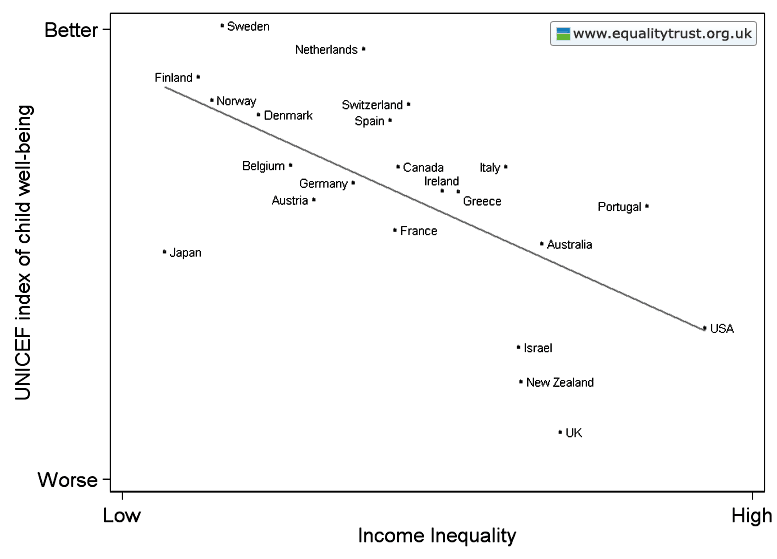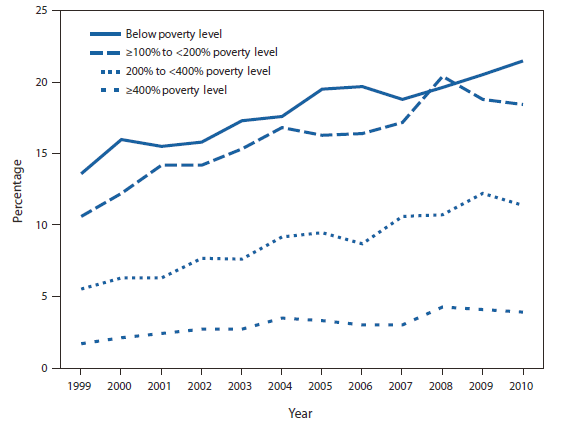The mysterious SocProf, who writes The Global Sociology Blog, offered a nice review of Richard Wilkinson and Kate Pickett‘s book, The Spirit Level: Why More Equal Societies Almost Always Do Better. Wilkinson and Pickett offer transnational research showing how, exactly, income inequality is related to bad outcomes on average. In other words, as SocProf puts it, “…egalitarianism is not a bleeding heart’s wet dream but rather the only rational course of action in terms of public policy.” The 11 graphs, available at the Equality Trust website, speak for themselves.
Societies with more income inequality have higher infant death rates than other societies:
Societies with more income inequality have higher rates of mental illness than other societies:
Societies with more income inequality have a higher incidence of drug use than other societies:
Societies with more income inequality have a higher high school drop out rate than other societies:
Societies with more income inequality imprison a larger proportion of their population than other societies:
Societies with more income inequality have a higher rate of obesity than other societies:
Individuals in societies with more income inequality are less likely to be in a different class than their parents compared to other societies:
Individuals in societies trust others less than people in other societies:
Societies with more income inequality have higher rates of homicide than other societies:

Societies with more income inequality give less in foreign aid than other societies:

Children in societies with more income inequality do less well than children in other societies:

The authors sum it up pretty simply: : “Th[e] dissatisfaction [measured in this data is] a cost which the rich impose on the rest of society.”
And they have a clear policy proposal relevant to the current economic crisis.
[This is] a clear warning for those who might want to place low public expenditure and taxation at the top of their priorities. If you fail to avoid high inequality, you will need more prison and more police. You will have to deal with higher rates of mental illness, drug abuse and every other kind of problems. If keeping taxes and benefits down leads to wider income differences, the need to deal with ensuing social ills may force you to raise public expenditure to cope.
Readers Ana and Dmitriy T.M. sent in a TED talk of Richard Wilkinson discussing the relationship between income inequality and social problems:
Lisa Wade, PhD is an Associate Professor at Tulane University. She is the author of American Hookup, a book about college sexual culture; a textbook about gender; and a forthcoming introductory text: Terrible Magnificent Sociology. You can follow her on Twitter and Instagram.








